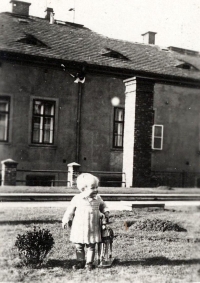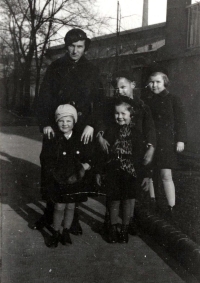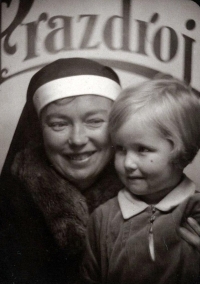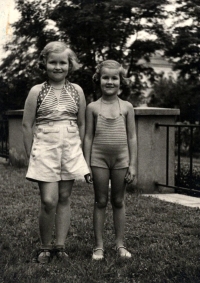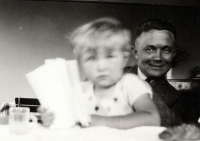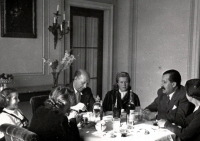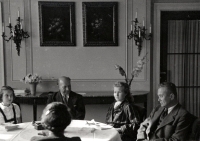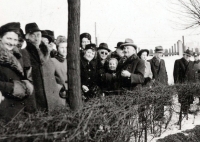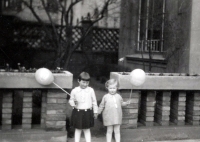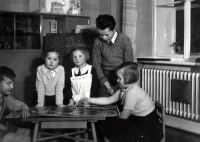We are not a brave generation at all

Stáhnout obrázek
Jana Bobková, maiden name Šebelíková, was born on 15 October 1926 in Pilsen. Her childhood and adolescence is connected with the brewery Prazdroj, where her father Jan Šebelík was the chief brewer from 1930 to 1951. At that time the family lived in the service flat of the director‘s villa right on the brewery premises. Jana Bobková‘s mother was named Olga Kroftová and came from a prominent family. Her father was a director of insurance companies, her grandfather was the mayor of Pilsen and her great-uncle Kamil Krofta became the Czechoslovak Foreign Minister in 1936-1938. During the war Kamil Krofta joined the anti-Nazi resistance, for which he was arrested in 1944 and imprisoned in the Small Fortress of Terezín until the end of the war. Jana Bobková recalls the day-to-day running of the brewery, her father‘s normal duties related to his position, but also how she and her loved ones experienced the traumatic period after the Munich Agreement and the tragedy of the Czech nation after the assassination of Heydrich. Her own fears were most acute in the spring of 1945, when Pilsen was repeatedly bombed. During the air raids, when they had to take shelter in the brewery cellars almost daily, both Pilsen breweries were severely damaged, including the residential houses and the director‘s villa. In addition, the Šebelík family‘s flat was also damaged as a result of the ongoing fighting during the liberation of Pilsen by the American army. During the war, Jana Bobková began studying at the grammar school, but interrupted her studies in 1944 due to forced labour for the Reich. Fortunately, she was able to stay in Pilsen and work in the office of the brewery doctor. It was also at that time that she met her future husband Karel Bobek, then head of the Pilsen internal medicine clinic, later chief internist of the republic and university professor. After the war, she graduated and started working, first in administration in a brewery, later in the health care sector. After the war, the Pilsen breweries were nationalised under the Beneš decrees and the original management was replaced by a new one. Jan Šebelík remained as technical director and chief brewer. During the war, the German leadership and subsequently the communists had reservations against him, but his high level of expertise made him irreplaceable. At the beginning of the 1950s, he was secretly monitored by State Security, dismissed from his post by the Communist brewery management in 1951 and arrested in 1957 for alleged espionage and treason. The main reason for his arrest and subsequent conviction was, however, a cadre report, written in the spirit of the communist ideology of the time. Jan Šebelík was sentenced to five years in Leopoldov prison and released on parole in 1961. For the formerly respected family of the chief brewer, his conviction meant immediate social exclusion. Moreover, Jana Bobková was unexpectedly widowed at the age of 38, but remained faithful to her life partner and never remarried. She brought up two children and in 2023 was living alternately in Prague and Pilsen.
